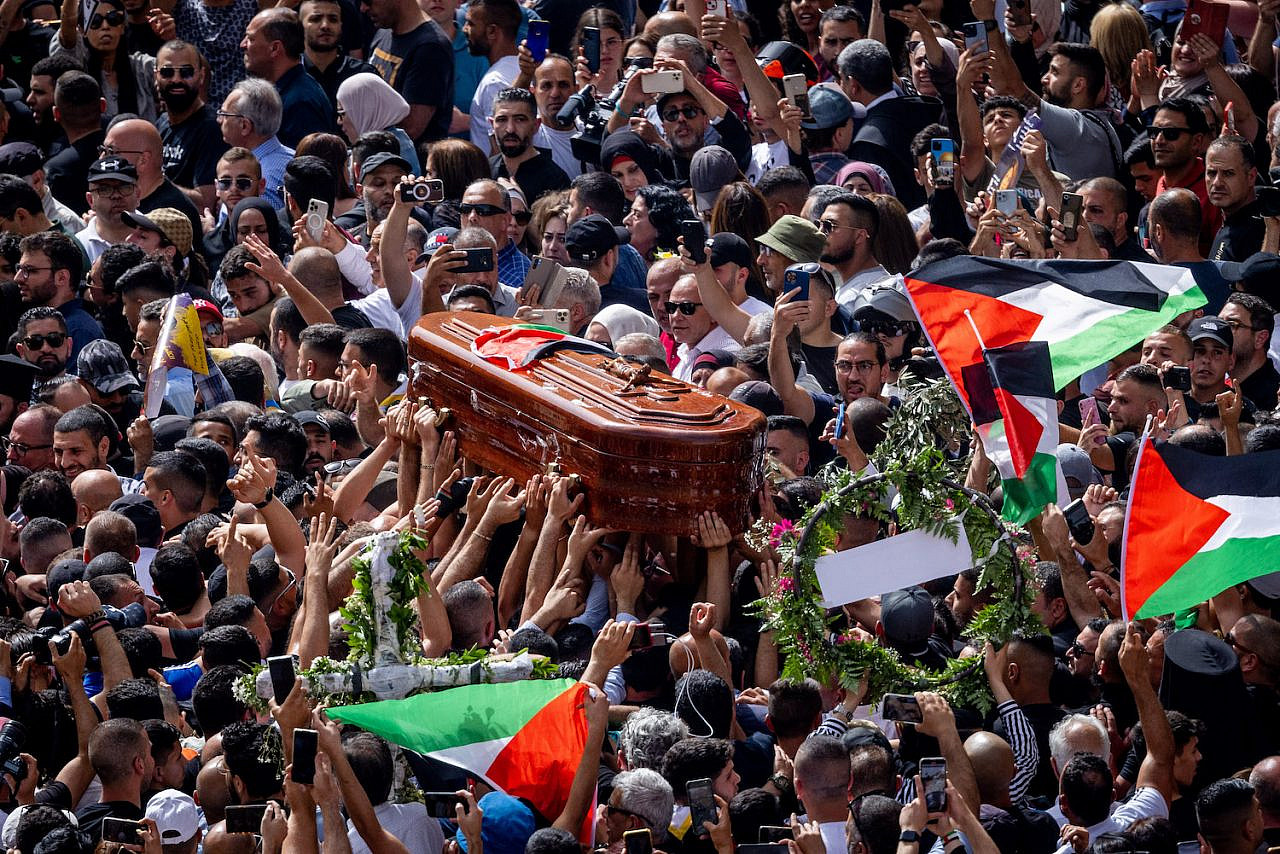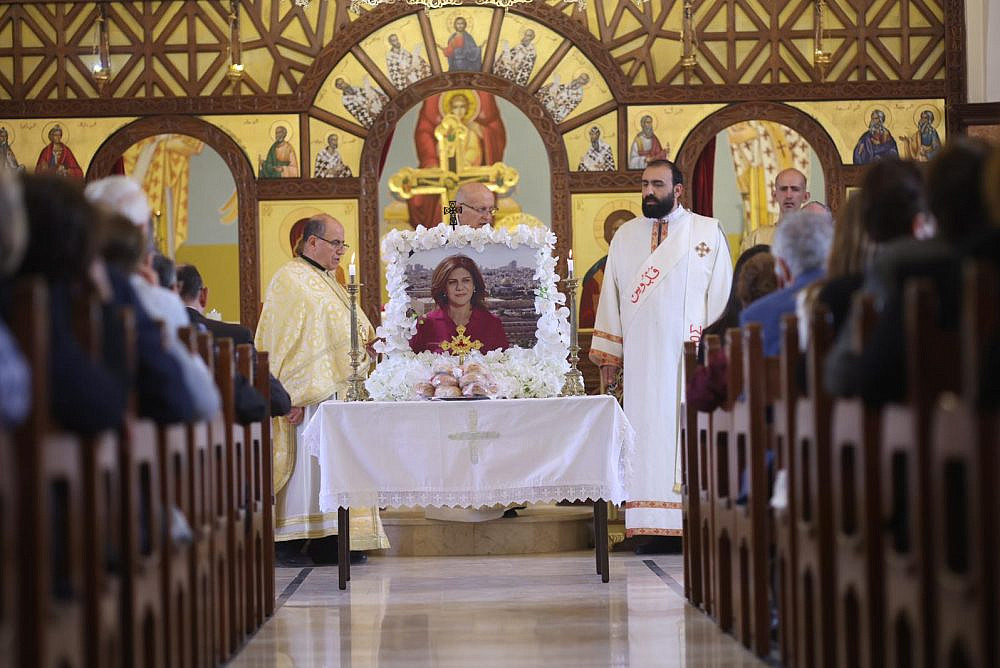This article originally appeared in “The Landline,” +972’s weekly newsletter. Subscribe here.
No one can believe it has been a year. The wound is still fresh on the first anniversary of an Israeli sniper killing renowned Palestinian journalist Shireen Abu Akleh, as she was covering an Israeli raid on Jenin refugee camp in the occupied West Bank.
On Thursday, a ceremony for the laying of the cornerstone of a new media museum named for Shireen took place in Ramallah. I drove down from Haifa to attend the event, and, after a rough ride through the crowded Israeli military checkpoint into the city, arrived exhausted and with a heavy heart.
Once there, I see the faces of fellow journalists, many of them my former colleagues — reporters, producers, and photojournalists. We covered Israeli atrocities committed against our people in the West Bank, Jerusalem, and inside Israel. Greeting each other now, none of us can crack a smile — as if we all share a single united, aching heart. I think to myself that it could have been any one of us. The killing machine that is the Israeli military is still not held accountable; it could be any one of us in the future.
The Ramallah municipality provided a piece of land for the museum to be built on, and Al Jazeera — where Shireen worked for at least 25 years — donated the money to build the museum. It will commemorate her memory, as well as that of every Palestinian journalist killed in the conflict, from the 1930s until today. In his speech at the ceremony, the head of the Palestinian Journalists’ Syndicate says that, since 1967, the Israeli military has killed 55 Palestinian journalists while they covered the conflict. The idea that Shireen was not the first and will not be the last terrifies me.

On a big screen in front of us, the municipality shows clips from Shireen’s work in the field. She covered events and human stories all over Palestine. Hearing her voice sends shivers down my spine; she had a beautiful and unique voice that most of us could recognize without seeing her face. All I can think about is that I would rather have her still among us than have a first-of-its-kind museum for journalists. She is irreplaceable.
In one of the clips, Shireen is startled from the sound of bombs; in another, she suffocates from tear gas canisters. But these inconveniences never deterred her. It was a priority for her to cover every single story, from the dangerous to the happy, from the north of historic Palestine to its south. Video clips from her assassination follow. We have all memorized the sounds from that footage. Her cameraman screams in horror “Shireen is wounded, no, no, no!” It is like rewatching a horror movie, feeling both scared and helpless.
Then we see videos from her funeral, where Israel killed her for the second time when soldiers attacked the pallbearers carrying her coffin from a Jerusalem hospital. It was a horrible and traumatic memory. Every single person I spoke to in the last year said they felt the same thing: when the coffin fell to the ground, their heart sank. It became etched in our collective memory, like the Nakba and Intifadas.
Shireen’s brother, Anton Abu Akleh, is sitting in the first row at the ceremony. Along with the rest of his family, he left no stone unturned in the past year seeking justice for his beloved sister. Next to him is Walid Al-Omari, the Al Jazeera Arabic Palestine bureau chief who worked alongside Shireen for 25 years. It is as if he aged a decade since her death. He loved Shireen and was proud of her.
Most read on +972
The head of the Ramallah municipality and other senior Palestinian officials, foreign officials, and other Palestinians of all ages are here; if the war on Gaza wasn’t overshadowing the first anniversary of Shireen’s killing, even more would have shown up. Palestinian Prime Minister Mohammad Shtayyeh gives a heartfelt speech, vowing to keep trying to hold Israel accountable for Shireen’s death.
Last December, Al Jazeera submitted a request to the International Criminal Court to prosecute Shireen’s killers; the Abu Akleh family, along with the Palestinian Journalists’ Syndicate, submitted another. So far, the court’s only response has been to acknowledge receipt of the requests.
The tragedy of Shireen’s killing has channeled endless energy into the hearts of Palestinian journalists. We are more determined to keep exposing the atrocities of the Israeli occupation. Justice will be served when Palestinian journalists can do their work in the field without being harassed, arrested, beaten, wounded, or killed.





